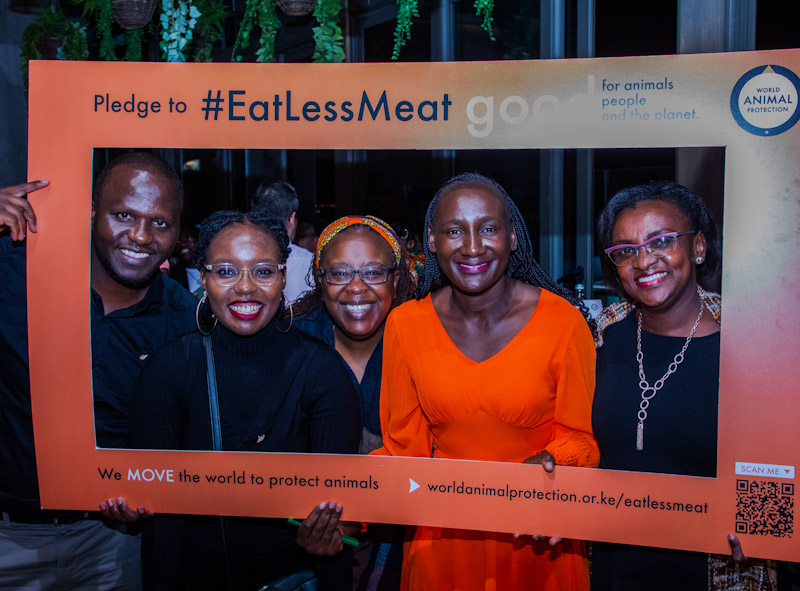Animal welfare advocates have called on the public to reduce the amount of meat they eat.
In a campaign dubbed “EatLessMeat”, World Animal Protection, a leading animal welfare organization, notes that rapid population growth has led to an increase in demand for meat globally leading to suffering of animals in farms and climate change.
The “Eatlessmeat” campaign aims to raise awareness about the negative impacts of high meat consumption amidst rising population, drastic climate changes and poor human health and intensification of animal farming.
Speaking at the event launch, Dr Victor Yamo, the Food systems Campaign Manager at World Animal Protection singled out intensive animal farming as the biggest contributor of animal suffering, deteriorating human health and climate damage.
Dr. Yamo said that over 50 billion farm animals are factory farmed every year, with around two in every three animals raised in intensive systems that prioritize production over welfare and health.
“This approach to farming places a heavy burden on precious resources, such as grain-based feed, water, energy, and medication, and contributes to a range of issues, including environmental pollution, climate change, biodiversity loss, disease, and food insecurity.” Dr. Yamo said.
He stressed that by promoting the “EatLessMeat” campaign, people are being encouraged to make informed choices about their diet and reduce their demand for factory-farmed animal products.
“Factory farming is not just bad for animals, it’s dangerous, unfair, and dirty, with significant impacts on human health and the environment,” Dr. Yamo concluded.
This is a transformative campaign, looking at sustainability of production systems and ensuring that animals are catered for, and their needs are met.
The campaign focused on three levels,
First, the market forces are always driven by demand and supply. By consuming less meat, there is a reduced demand which eases the pressure of producers turning to intensive factory farming to supply animal products. This directly translates to an improved lifestyle for farmed animals.
“This is to ensure that animals are in production systems that recognize their and provide for their fundamental freedoms, ensuring that they have good food and water, a comfortable environment and disease control is managed, and this is critical and important because if this is not catered for we will end up with poor public outcomes for instance the increase of Non-communicable disease”. Dr.Yamo warned.
At the second level, the campaign is stressing better Human Health
The activists say that excessive meat consumption contributes to malnutrition in all its forms including obesity which results in noncommunicable diseases.
Farms that supply meat are characterized by substandard husbandry practices and poor animal welfare, leading to the increased use of antimicrobials which can spill over to humans through meat.
And for the third level, Dr. Yamo points out that the “EatlessMeat” campaign is also concerned with protecting the planet.
Dr.Yamo explains that Intensive animal farming is the biggest contributor to climate change, which is the world’s biggest threat. Adding that livestock production contributes to more greenhouse gas emissions than all forms of transport combined.
Because deforestation is the second-largest driver of global warming, animal welfare advocates believe that reducing the demand for livestock products can reduce the need for destructive deforestation for farming purposes and subsequently mitigate climate repercussions.








